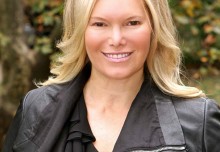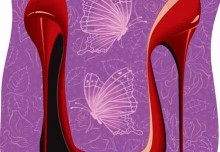
Growing up in a culture of illness, Tana learned valuable lessons the hard way that offer a pathway to create a culture of wellness.
This month’s featured interview is with Tana Amen. Tana is a nurse, a New York Times Bestselling author, a highly respected health and fitness expert and a nationally renowned speaker and media guest. She and her husband Dr. Daniel Amen have done a recent PBS special called Healing ADD (which of course is Attention Deficit Disorder).
Dr. Mache Seibel: I want to begin by asking how you got started in the food side of health?
Tana Amen: I grew up in a culture of illness. I had a single mom who worked three jobs just to put food on the table. There was a lot of trauma and drama in my environment growing up; I had an uncle who was murdered in a drug deal gone wrong. I paid a price for the combination of the chronic stress and the really poor quality of food. By the time I was four years old, I had upper and lower GIs from severe digestive issues. No one really talked about getting gluten and dairy out of your diet back then.
Dr. Seibel: Who knew back then?
Tana: No! Right! I was a latchkey kid. I walked home from school at five years old and locked myself in the house. I comforted my stress and my anxiety with the Captain Crunch, Frosted Flakes, and Lucky Charms. I would just eat junk food. I was paying the price and I never understood it. And then at 23, I was diagnosed with thyroid cancer but I’d already had several surgeries by the time I was in my 20s. No one told me how much all that junk food was going to affect me.
I went from being this very vibrant person, to being just completely miserable. I had the wrong doctor who put me on too high a dose of thyroid. When you are on high doses of thyroid long term, it decreases your muscle mass, puts you at high risk for osteoporosis, increases your heart rate and makes you sort of wired and tired all the time. I didn’t really understand what was going on.
Dr. Mache Seibel: Wow.
Tana: And I’m like, what the heck is happening? I had just finished being on the cover of Get Healthy with the Brain Doctor’s Wife, and the next thing I know I’m like waking up. I can’t sleep all night, and at 7:00 in the morning I feel like it’s middle of the night.
Tana: It was horrible; I felt like just the walking dead. And this happened within a matter of a couple of months.
Dr.
Seibel: You must have felt that life’s rug got pulled out from under you.
Tana: I did. It was just a horrible feeling and this is someone who spends her time researching health, nutrition, and fitness and hanging out at nerdy medical lectures. So when I go back and I told my doctor, “This isn’t okay. There has to be some other way,” and he tells me, “This is your genetics, there’s nothing you can do. In fact, you’re in denial because you won’t face the fact that you have cancer and you keep trying to find another answer,” and he says, “maybe you need to see a psychiatrist.” And that’s the point where I almost fell out of my chair. I’m like, he’s kidding me.
Dr. Seibel: Sounds like you were in the wrong doctor’s office.
Tana: Exactly! And so, when he told me to see a psychiatrist I’m thinking, “Do you know who I’m married to?” (Her husband Dr. Dan Amen is a nationally known psychiatrist) I decided I had to become my own health advocate. I accept the fact that I will be on medication for the rest of my life. I’m not anti-medication but I am against the indiscriminate use of medication without looking into all of your options, and I don’t like someone not giving me all my options.
Dr. Seibel: We share the same exact perspective on all of this.
Tana: We don’t do either/or. We look at the whole person: what does this person need, what’s going to work best for this person? And that’s how I treat nutrition. It’s not one-size-fits-all. We want to customize it, individualize it, look at your numbers, find out what’s going to work best for this person. I had gallbladder disease and lots of issues, never connecting it to food. I had mono, had the tonsils removed; I had all of these different issues occur before I even have the thyroid disease. I was in the hospital and in doctor’s offices all the time. Chronic antibiotics; just always sick.
Dr. Seibel: That’s a very hard upbringing for anyone to overcome. It must have had a big impact on you.
I remember being told at age 11, “Oh, if you give your grandmother the wrong insulin dose…”
Tana: It really did and that’s probably a big reason I became a nurse. My grandmother ended up moving in with us a little later and it wasn’t so she could take care of me; it was basically so I could take care of her. She had diabetes, so we would watch her and take care of her. I started giving her insulin shots by the time I was eleven because my mother was working. I remember being told, “Oh, if you give her the wrong dose…”
Dr. Seibel: She’ll die.
Tana: She will not only get really sick but she could die. Right.
Dr. Seibel: “You’re 11, kid. Don’t give grandma the wrong shot or she is going to die and it will be your fault. Don’t worry about it though.”
Tana: You know, when you’re poor, you rally. There’s nothing else you can do.
Dr. Seibel: But when you had to, you rose to the occasion because you absolutely had no choice.
Tana: Right!
Dr. Seibel: You were stressed out from your financial, dietary and health circumstances. And then at age 11 you had this huge social weight placed on you as the responsible caregiver for your grand- mother who could potentially die from your care. That must have been awful.
Tana: Well, I didn’t realize the amount of stress I was under, but your body starts to pay the price.
Dr. Seibel: And you wanted to be a doctor, you said.
Finally, there was a point where I became a warrior for my health
Tana: Yeah, I wanted to be a doctor, but I got sick a lot and I ended up dropping out of school three times because of it. At some point I became very depressed. Finally, there was a point where I became a warrior for my health. I thought, I’m not going to give up. I’m going to take care of this. And when you asked why I got into nutrition, it is because I decided I was going to figure out what I could do, how to fight back, find the missing link. As I started doing my own research, I figured out there was a huge connection between nutrition and your health, even though I had been told for years there was not!
Dr. Seibel: Really?
Tana: Yes, absolutely; I was told it was genetics. Take your medicine and just live with it. Be grateful.
 Dr. Seibel: So after you’re born and no matter what you eat or what you do, your genes are there and you’re just going to turn out to be X, Y, or Z?
Dr. Seibel: So after you’re born and no matter what you eat or what you do, your genes are there and you’re just going to turn out to be X, Y, or Z?
Tana: Yeah. The only thing I recall as far as nutrition was telling my grandmother to stop eating so much sugar and make sure you eat wheat bread instead of white bread. There was no serious nutrition; just the food pyramid. I’m just about done with a Master’s Program in Metabolic Medicine at the American Academy of Anti-Aging Medicine (A4M). I’ve taken hundreds of hours in nutrition; I’m not a certified nutritionist, but that’s what I do.
Dr. Seibel: You took what impacted you and packaged it up as a passion to help other people not be in the same place you were.
Tana: Absolutely. You don’t have to just accept what’s going on. Yes, I will forever take medication and I’m grateful for it. When I was 15 I was attacked while walking to high school. I was nearly raped but I fought back. I had to fight really hard, and I almost didn’t get away from the guy but I did get away. I decided in that moment I was never going to be a victim. I made the decision to learn how to protect myself. I was going to learn how to fight.
I took self-defense classes. I now have a black belt in Taekwondo, I am about to get my black belt in Kenpo Karate. My daughter takes karate. I find it very empowering. It’s just something that I love. I use those metaphors from martial arts when I train women (anybody actually) in our courses. And I really love it.
Dr. Seibel: Was this helpful with your thyroid cancer?
When I got cancer I realized that the attacker was inside my own cells
Tana: Right. When I got cancer I realized that the attacker was inside my own cells. At first, I let it get me down; I felt like a victim. I thought it’s not my fault, I can’t fight back, there’s nothing I can do. I really got depressed. And then all of a sudden I realized: I can fight back. I’m going to become a warrior for my health just like I am physically in real life. And so, I started fighting back.
That’s the same thing that I teach people about nutrition and health. You need to be a warrior for your health – and this is war. The food industry doesn’t necessarily have your best interests at heart; you have to be your own advocate. When I was taking my training, all I wanted to learn was how to fight. But the first thing they taught me was awareness, avoidance, deflection and how to make better choices. Then when you have to, you fight. That’s what I teach other people.
Dr. Seibel: So you went into this martial arts program and you actually took some of the wisdom and tools you learned there and applied it to health science, as a framework and approach to the problem.
Tana: Oh, absolutely. It’s a metaphor.
Dr. Seibel: That’s very cool.
Tana: Yeah. I told all of my clients I want you to get a black belt in health. And being a black belt doesn’t mean you’re stronger or you’re invincible or you’re tougher, it means you don’t give up. You get up when you fall down. You just keep going. You face your fears and you keep moving.
Dr. Seibel: Metaphorically these are very powerful tools.
Tana: For me, they’ve been life saving.






